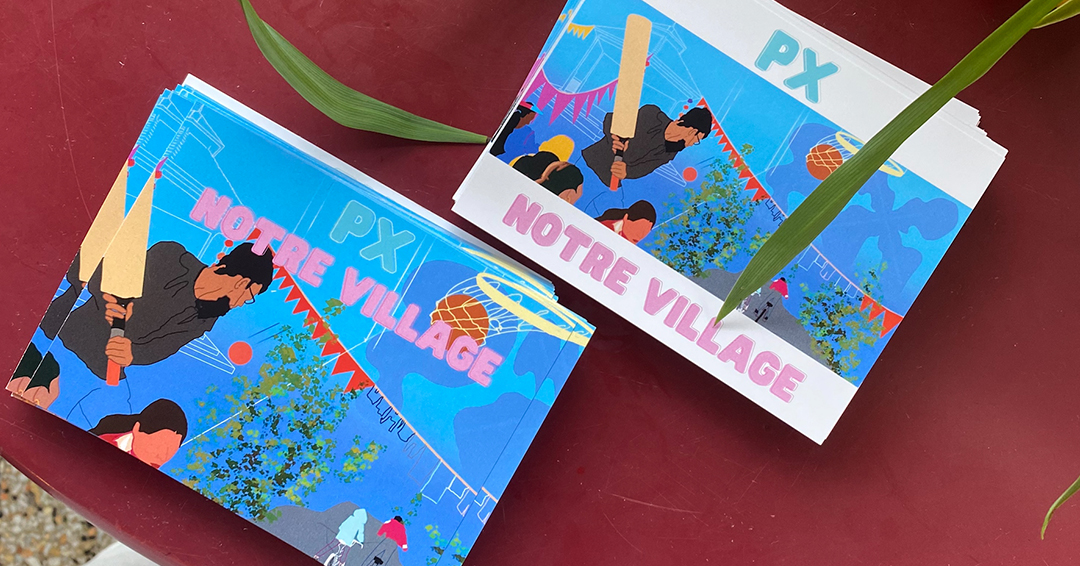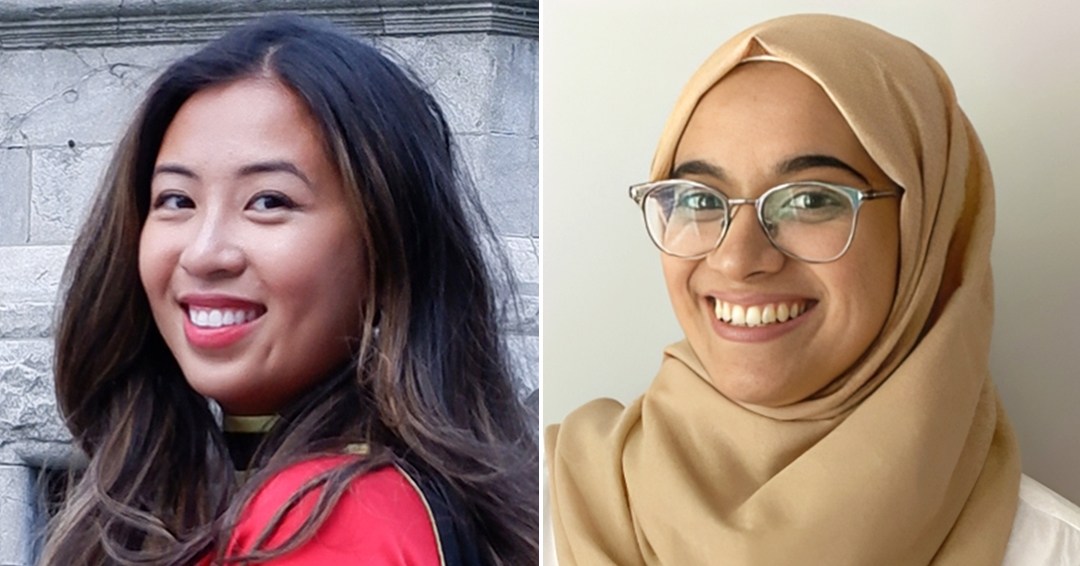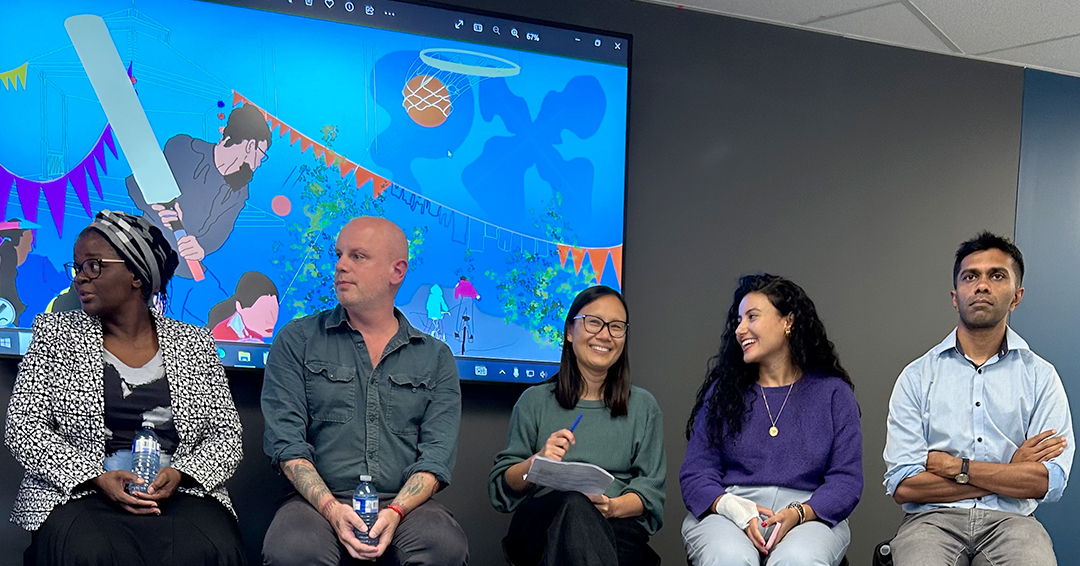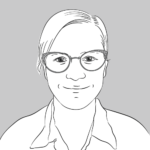
McGill researchers invited community group leaders and clinician-scientists working in Parc-Extension to discuss dos, don’ts and challenges at recent panel event
McGill researcher and grad Tammy Bui knew that the WeCanVax initiative she co-founded had done what it was meant to do – significantly increase vaccination rates in Parc-Extension during the pandemic. However, working closely with community groups in the neighbourhood had opened her eyes to the fact that a lot of community-based research still takes a very colonial approach. “Are we really benefiting the community members here?” she wondered. “Or is it a benefit to us as researchers, because we’re getting answers to the impact of our work?”
Bui joined forces with fellow SPGH grad and Parc-Exer Maryam Parvez, to explore these questions. Their panel discussion, “How to decolonize community-based research,” held on September 27 at the School of Population and Global Health (SPGH), was part of that journey.

Not what we need
A WeCanVax follow up called Advocating for vaccine Confidence and Trust (ACT) Project, funded by the Canadian Institutes of Health Research (CIHR) and part of the South Asian Research Hub run by their mentor, Ananya Banerjee, PhD, Assistant Professor in the SPGH led the researchers to re-examine their approach. While interviewing community members about the impact of WeCanVax, the ACT team – also consisting of co-founders and fellow Master of Public Health grads Joyeuse Senga and Nora Moidu – realized its project design was a little off the mark.
“What came out was that a lot of folks were tired of talking about COVID,” said the multilingual Parvez (her fluency in Urdu and Hindi and smattering of Punjabi came in handy during the interviews with recent South Asian immigrants), speaking after the panel event, during which she also acted as English-French translator. “There was a range of issues and problems that community members were dealing with. So even though we wanted to make sure that we were fulfilling the CIHR’s mandate, it wasn’t something that they felt was relevant to them.” They set out to redesign their project and really listen to the needs to the community.
Listen and learn
Bui and Parvez decided to organize the panel, under the guidance of Prof. Banerjee (who offered opening remarks), to give the community groups a platform in the academic setting to state their needs. “We wanted them to have a space to communicate with researchers and academics to say ‘If you want to come into the community, these are our standards and guidelines, and this is what we need,’” said Parvez.
Speaking before a couple of dozen students and faculty members in a modern classroom in the SPGH, the panellists – three community group leaders and three clinician-researchers – evoked the image of researchers “parachuting” into the community, extracting data and then leaving without a trace. On top of that, they rarely sharing their results afterwards.
“We give our time, and the patients too – we want to see the study,” said Rose Ndjel, Executive Director of Afrique au Féminin, speaking in French, during the panel discussion.
Alex Megelas, co-founder of the Parc-Extension Community-Based Action Research Network, explained that because of Parc-Ex’s demographics – a large recent immigrant population with one of the lowest socio-economic statuses in Canada – local community groups would regularly receive requests along the lines, ‘We need 100 poor people for our study – can you help?’ The overworked, understaffed organizations would do their best, in hopes there would be some benefit for their clients. But in reality, the researchers’ funding rarely included provisions for community projects that extend beyond the life of the study.
“Often it happens that the project doesn’t respond to the needs of the community, so it doesn’t achieve anything,” said Salwa Ben Belgacem, Coordinator of the Parc-Extension Roundtable, speaking in French. “We want community projects,” emphasized Ndjel. “The data can help us improve the services we offer. But we would like them to work with us on the issues – that’s what good collaboration is about.”

 The seasoned community-based clinician-researchers on the panel agreed.
The seasoned community-based clinician-researchers on the panel agreed.
Patricia Li, MD, a clinician-scientist at the Centre for Health Outcomes Research at the Research Institute of the McGill University Health Centre and Associate Professor, Department of Pediatrics, likened embarking on a community research project to starting a new relationship. You have to take the time to get to know each other, to listen and to plan your future together, she said, noting that it can take up to six years to establish trust in the community.
“Structural issues make things difficult,” added Baijayanta Mukhopadhyay, MDCM, Director of the Office of Social Accountability and Community Engagement and a family physician. He said simple but frustrating bureaucratic snags like difficulty paying participants and multiple requests being made from different units within one university, all make it tough to nurture trust.
Juan Carlos Chirgwin, a family physician at the CLSC de Parc-Extension who trains McGill medical students, said his attempts to help refugee patients are similarly hampered by a lack of institutional coordination. “It’s hard to identify these patients,” he said. “Data from public health is not transmitted to the clinical teams – the institutions are not working together. Researchers with an interest in social determinants of health can help elucidate the issues.”
The panellists encouraged students and faculty to challenge these systemic issues and to develop not just research projects but community projects. Ndjel urged them to take pride in making a difference: “’My research led to this benefit. It wasn’t for nothing.’”
Speaking after the panel, Bui said she’s hopeful that things are changing. “It’s important to recognize that McGill feels like a really good place to do this,” she said. “We’re talking about how to create and push back on institutional change – at the institution, at McGill. I think that’s pretty special in itself.”
Related:
Student initiative confronts vaccine hesitancy in Montreal’s most diverse borough

